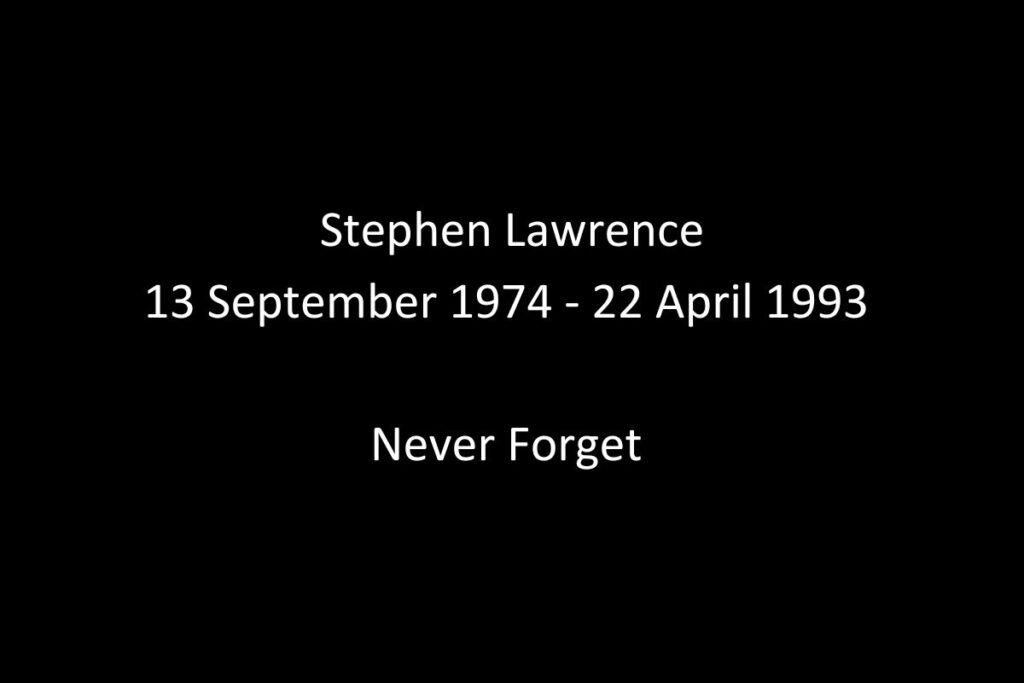On the 22nd April, 30 years have passed since the racially motivated murder of Stephen Lawrence. Stephen Lawrence Day sheds light on a shameful mark on British racial history and provides the opportunity for greater awareness of such racial issues. Issues that happened then, and issues that continue to happen today.
In April of 1993, Stephen Lawrence was murdered at the hands of strangers in South East London, being just 18 years old. Such an unprovoked and racially-motivated attack remains heavy amongst many still today, with justice only served 18 years retrospectively to the crime in 2011. PM Theresa May announced Stephen Lawrence Day in 2018 and since then the Stephen Lawrence Day Foundation has continued the advocacy work to make Stephen’s legacy one of change.
How is racial discrimination permeating society?
The inquiry into the Metropolitan Police’s investigation of Lawrence’s murder- in the 1999 Macpherson Report- concluded there was “institutional racism” and provided 70 points of improvement to address such structural issues of inequality. Recent scrutiny of the Metropolitan Police this year has echoed much of what was reported in 1999.
The landmark report conducted by Baroness Louise Casey last month found structural systems of inequality within the Metropolitan Police, including institutional racism, homophobia and misogyny. Casey stated:
“The Met has yet to free itself of institutional racism. Public consent is broken. The Met has become unanchored from the Peelian principle of policing by consent set out when it was established.”
Baroness Doreen Lawrence, Stephen’s mother, has reflected on recent events and the legacy of her son’s murder, as highlighted by The Voice:
“I don’t know how many more inquiries and how many reviews you need to have to say the same thing – and still no changes, and still denials… Officers [are] able to be as brutal as they want, and nobody holds them to account.”
“Within the black community, how we’re treated, how crime’s investigated, we’re never seen as a group of people that should have justice…So everything that we’ve had, we’ve had to fight for – and continue to fight.”
How is racial discrimination permeating the workplace?
It is clear that racism remains in many public sector jobs, as recently reported on by ethnically diverse police officers. Whilst the over-policing of Black Londoners is a reality many are very much aware of, ethnically diverse Met police officers are also more likely to experience workplace discrimination and bullying. The Baroness Casey Review 2023 found that Black officers are 81% more likely to be in the misconduct system than white officers, and recruitment and retention of Black officers has not been improved.
Research conducted by GovUK in NHS England found that as of 2019, 15% of ethnically diverse (non-white) staff had experienced discrimination at work from another staff member, compared to just 6% of all White NHS staff. This pattern of greater discrimination amongst ethnically diverse colleagues was apparent in 99.6% of all NHS trusts.
Such discrimination permeates beyond the public sector and the rigour of mandated reviews. The TUC’s 2022 report, based on a sample of 1750 ethnically diverse workers across the UK, identified that many workplaces discrimination along racial lines, leading to over 120,000 ethnically diverse workers quitting their jobs. The report estimated that 2 in 5 ethnically diverse workers have reported experiencing racism in the workplace in the past 5 years, with only 19% of these (most recent) incidents being reported to their employer.
It is clear that every sector, every industry and every organisation has discriminatory barriers that need addressing.
Stephen Lawrence Day is an opportunity to reflect and act on racial discrimination. Our communities, our police forces, our workplaces necessitate change.
How can Stephen Lawrence Day act as a catalyst for change in your organisation?
How can you contribute to a legacy of change?
We would value your thoughts. If you want to see change and race equality in the workplace, join the Race Equality Matters’ movement.
Image – Race Equality Matters

